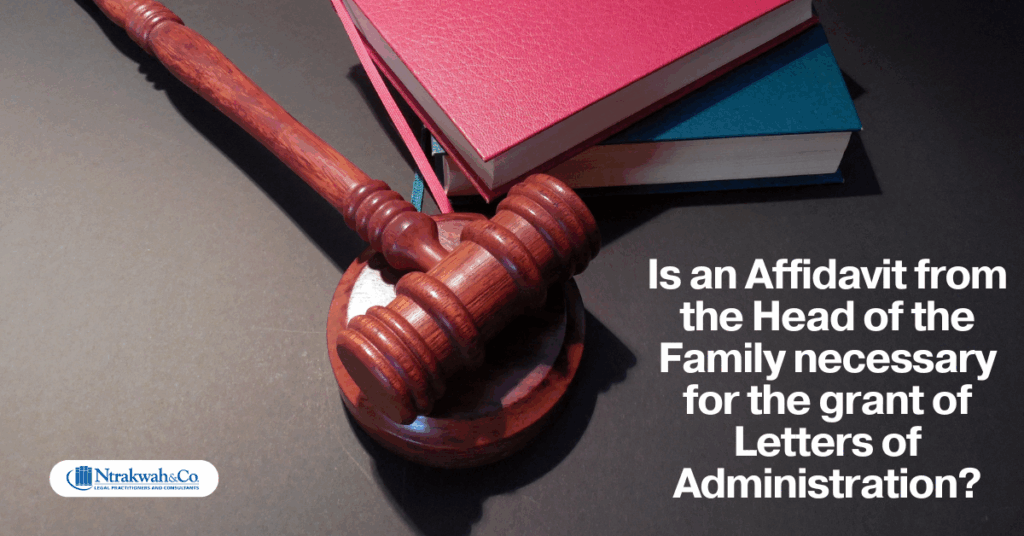I recently represented a widow in a case where the head of her late husband’s family brought a lawsuit against her. This occurred just four months after she had been granted Letters of Administration (LA) by the High Court to administer her late husband’s estate.
According to the Head of Family, the grant of LA to the widow was void as the widow’s application for LA did not include an affidavit sworn to by him as Head of Family confirming the facts as contained in the affidavit of the applicant.
The Head of Family prayed the court to order the widow to return the LA and to deposit same at the Court.
What does the law say?
A person is said to have died intestate when that person dies without:
- leaving a Will on how his/her properties should be disposed of, or
- that person dies leaving a Will that does not fully determine how his/her properties should be disposed of, or
- that person prepares a Will which is invalid.
When a person dies intestate in Ghana, the Intestate Succession Act, 1985 (P.N.D.C.L. 111), governs how the person’s properties should be disposed of.
To administer the deceased’s estate, one must apply for Letters of Administration (LA). Order 66 Rule 13 of the High Court (Civil Procedure) Rules, 2004 (C.I.47) lists the persons who are entitled to the grant of LA as follows: “where a person dies intestate on or after 14th June, 1985, the persons who have beneficial interest in the estate of the deceased shall be entitled to a grant of letters of administration in the following order of priority:
- Any surviving spouse;
- Any surviving children;
- Any surviving parents;
- The customary successor of the deceased.
P.N.D.C.L. 111, was enacted to remove the anomalies in the law present at the time relating to intestate succession and to provide a uniform intestate succession law that would be applicable throughout the country irrespective of the class of the intestate and the type of marriage contracted by him or her. P.N.D.C.L 111 was enacted to protect spouses and children from the extended family.
The Memorandum to P.N.D.C.L. 111 states that: “at customary law, there is very little protection for a surviving spouse. Neither spouse has a right to the property of the other. Children in a matrilineal system have no more than a right to maintenance by their father’s customary successor and a right to residue in their father’s house subject to good behaviour.”
It is quite clear that the introduction of PNDCL 111 has helped in dealing with some of the issues faced by spouses and children upon the death of a wife/husband and mother/father. Before the introduction of this law, one can only imagine the horrors that were endured by spouses and children. It is for this reason that the objectives of PNDCL 111 should be safeguarded.
To be continued…
Alexander Dodoo
Associate

